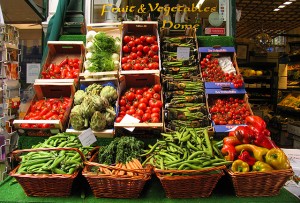Last time I wrote here I asked about help doing a food audit. Thank you so much to the folks who were willing to take some time and give me some input on my current food choices. I was surprised by the lack of response, especially considering I know a lot of people that seem passionate about this issue, but that’s a topic for another post.
As I said initially when I started this discussion, I’m very open to making changes in the way my family eats. I’m also much more interested in getting some straight forward tips and suggestions from those who have extensive knowledge and wisdom in this topic, rather then trying to sift through all the information myself (seems we are hesitant to speak with authority, we’d rather direct others to the book we read, a topic for another time again).
My goal is over the next several months, maybe year, to make changes in my families eating and purchasing habits toward a more ethical end. But, I need your help. The first step I’d like to take is to consider the meals that we make with some frequency and sort them into “bad” and “good” categories in consideration of ethics. I know this will be a little hard to do, but I think it’s worth a shot.
Here is how I’d like to try and do this. You’ll need to come to the blog if your reading in email or rss. In the comments section I’ll list meals that our family eats with some frequency (I’ll list just the basic title, not complete recipe). I’ll list one meal per comment and then you can reply to specific comments/meals with your comments about that meal. I’m looking for feedback about how good or bad meals are on a spectrum, so give it a 1-5 star rating if you’d like. Keep in mind I’m much more interested in how my food choices impact the lives of people, not so much the health benefits to my immediate family.
Additionally, if you’d like to add meal suggestions, recipes, etc in separate comments that would be super helpful. I’m looking for your most ethical meal ideas that are also low budget (and not overly complicated to prepare ideally). My initial goal is to start having more of the Good meals we make and less of the Bad meals. Slowly, I’ll add other people’s recipe suggestions as well. That’s my plan anyways.
I know this might all seem rather lazy on my part to not simply read the books and watch the movies myself, but sometimes this is the way that I best process things, relying on the wisdom of the community around me, and I think there are others who do similarly. Looking forward to your responses.

 In recent months, I’ve been encouraged by others to think a bit more critically about my families food choices. I’ve since watched and read a bit and I find myself still a bit skeptical. If an outsiders generalization of my readers is correct, my skepticism regarding the popular food trends of local and organic might be a bit controversial to you reading. I’m hoping it is, because I’d like to get some feedback and thoughts on the topic and am quite open to having my views changed.
In recent months, I’ve been encouraged by others to think a bit more critically about my families food choices. I’ve since watched and read a bit and I find myself still a bit skeptical. If an outsiders generalization of my readers is correct, my skepticism regarding the popular food trends of local and organic might be a bit controversial to you reading. I’m hoping it is, because I’d like to get some feedback and thoughts on the topic and am quite open to having my views changed. Experiments in living that step us out of our normal life experience can be invaluable tools. I think they are the sorts of things that begin to help us question our current lifestyle. One Josh
Experiments in living that step us out of our normal life experience can be invaluable tools. I think they are the sorts of things that begin to help us question our current lifestyle. One Josh 


